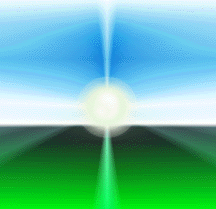Saturday, March 28, 2020
The central idea of the Christian religion, the idea which cannot be doubted or minimized without sacrificing the essential truth of Christianity, is that God, who had always through His messengers and prophets communicated His word to man, at last, as the climax of His grace, sent His only Son into the world. The Divine Nature, which is omnipresent and eternal, free from the human limitations of space and time, materialized itself in human form upon the earth, voluntarily subjecting itself to those limitations and yet continuing to be Divine... In so far as it was human, this expression of the Divine Nature in the world must have a beginning, a history for a term of years, and an end, i.e., a birth, life, and death. Yet, on the other hand, as being Divine, it was preexistent and deathless. The Word was in the beginning, and the Word was God. Birth and death have no bearing on the eternal Divine Nature. Thus the Divine Nature makes itself in appearance to us double, and this double nature is called by the terms Father and Son, which must of course be regarded as symbolical names attempting to make the Divine mystery intelligible to the human mind with its necessarily limited powers of understanding. [Continued tomorrow]
... Sir William M. Ramsay (1851-1939), Pictures of the Apostolic Church, London: Hodder and Stoughton, 1910, p. 1-2  (see the book; see also Rev. 22:13; Luke 24:46-51; John 1:1,14; Acts 1:8; 1 Cor. 15:3-9; 1 John 4:2-10; 2 John 7; more at Everlasting, Grace, Historical, Incarnation, Revelation, Time, Understanding)
(see the book; see also Rev. 22:13; Luke 24:46-51; John 1:1,14; Acts 1:8; 1 Cor. 15:3-9; 1 John 4:2-10; 2 John 7; more at Everlasting, Grace, Historical, Incarnation, Revelation, Time, Understanding)

© Compilation Copyright, 1996-2026, by Robert McAnally Adams,
with Robert Douglas, principal contributor
Curator, Christian Quotation of the Day
CQOD is licensed under CC BY-NC-ND 4.0.
To view a copy of this license, visit
https://creativecommons.org/licenses/by-nc-nd/4.0/
Logo image © Copyright 1996 by Shay Barsabe, of “Simple GIFs”, by kind permission.
Send comments to curator@cqod.com.
Last updated:
03/15/20
Fun stuff
 Tweet this Tweet this
CQOD is now available to include on your personal home page, blog, or church web site—perfect for a sidebar.
To display CQOD on your web site, updating daily, copy the line below and paste directly into the position that CQOD should appear:
<script type="text/javascript" src="https://cqod.com/js/"></script>
To display this particular quotation on your web site, copy the line below and paste directly into the position that CQOD should appear:
<script type="text/javascript" src="https://cqod.com/js/index-03-28-20.js"></script>
For more information, see CQOD Web Home
|
Welcome to the CQOD home page. This page changes daily, publishing a different
quotation each day, so return here often. Many people use this page as their browser home page. Bookmark this page by pressing cntl-d.
 means text and bibliography have been verified. means text and bibliography have been verified.
CQOD makes numerous features and links available. Here are some important links to help you get around:
Previous day’s CQOD (Niebuhr)
Following day’s CQOD (Ramsay)
This month’s CQODs
CQOD for today
CQOD on the go!
Use our double opt-in listserve to receive CQOD by email
CQOD daily index
All monthly archives
What’s New on CQOD
Author index
Title index
Poetry index
Scripture index
Subject index
Search CQOD (or see below)
CQOD Blog
 CQOD RSS CQOD RSS
 Facebook CQOD Fan Page Facebook CQOD Fan Page
 Follow CQOD on Twitter Follow CQOD on Twitter
 Follow CQOD on Instagram
About CQOD Follow CQOD on Instagram
About CQOD
CQOD on the Web
CQOD FAQ
CQOD Liturgical Calendar
Mere Christianity: a conversation
Simple Songs for Psalms
Quotations Bible Study
Essays Archive
Bookworms
Spotlights
Publications:
Jonah: a miracle play
Ruth: a play
The Unholy City
Also visit these organizations:
Arab Vision
Crescendo
Oratorium
More devotionals
Search CQOD:

|

 means text and bibliography have been verified.
means text and bibliography have been verified.



 Tweet
Tweet 

